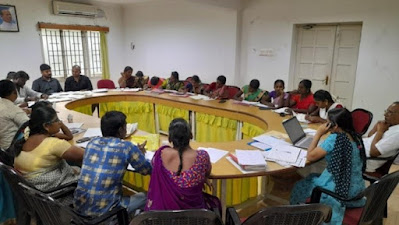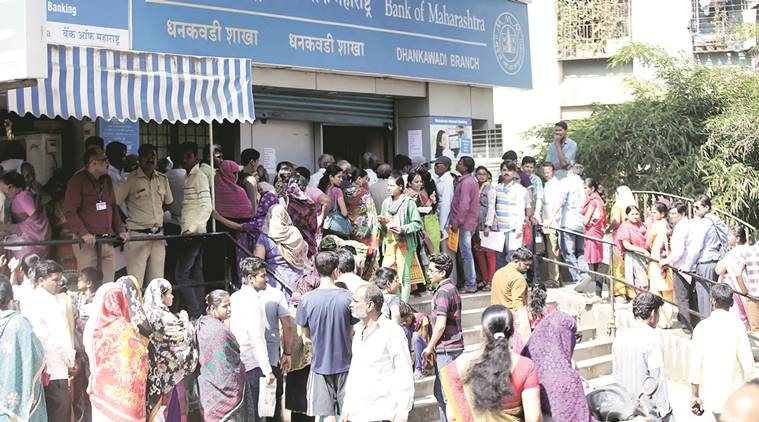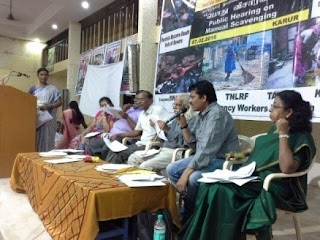India has a labour force of 488 million workers (2021), of which according to some estimations 86,8% or some 423 million are working in the unorganized sectors, mainly doing agricultural work in rural areas, or working in micro-, small, and medium enterprises, mostly in urban areas. The remaining 65 million workers are designated as being workers in the formal sector, but that doesn’t mean they are all formal workers. Only about 32 million workers in India are considered to be formal workers, which means their terms and conditions of work should be regulated and protected by labour laws and employment contracts. Overall, it is estimated that more than 90% of the workforce in India or about 450 million workers are informal workers, having no written contract, no regular pay, no protection by the labour laws, no access to social security.
New WSM – program 2022 - 2026
2022 saw the beginning of a new 5-year program, funded by the Belgian development cooperation agency DGD, for WSM’s five partner organizations in India, with a focus on defending existing labour rights, developing new labour standards, giving access to social security and developing social economy initiatives for mainly groups of informal workers. A particular feature in the programs with the informal workers is that before the organizations can really empower them, developing their capacity to avail their legal rights and to negotiate better working conditions, wages and access to social security schemes, these workers need to build the necessary self-confidence to speak up for themselves and become aware of their own working and living situation.
National Domestic Workers Movement (NDWM) and
National Domestic Workers Federation (NDWF), a federation of state-level domestic workers unions that was established in 2013, are both raising the awareness of the domestic workers in 14 states across India, to ensure that they can assert their labour rights and have more respect from their employers. The focus of the movement is on creating better working conditions for 25.000 domestic workers, with a decent and regular pay and a working day of maximum 8 hours, and on countering the day-to-day exploitation of women and children domestic workers. By further developing cooperatives in 8 states, NDWM also invests in empowerment of 15.000 domestic workers by giving them vocational training to earn an additional income so that they can ensure a secure and sustainable employment. In some states like Bihar, the movement will also organize a job placement agency so that the domestic workers can better exercise collective labour rights. The establishment and development of these cooperatives was already initiated in the years 2019 to 2021, with the financial assistance of the organization Familiehulp, and is now continued with financial assistance of the Alimentation Fund.

The NDWF, aside from giving capacity building to their local, state level and national union leaders on the labour law and social security, will try to affiliate 23.000 more members and facilitate access to social security schemes or welfare boards for 30.000 domestic workers by the end of 2026. Another goal for NDWM and NDWF is for the Indian Central Government to ratify ILO Convention 189 on the protection of domestic workers and to enact a comprehensive legislation to protect domestic workers in 8 states.
Christian Workers Movement India (CWM India) is working with groups of (women) agricultural labourers and construction workers, women workers in different trades such as beedi workers (rolling cigarettes), dhobi workers (informal workers doing the laundry), training them to understand what are their labour rights and how to increase their negotiating abilities to either receive a just and fair price for their products or a higher wage and working conditions according to what is foreseen by the law.
The Confederation of Free Trade Union India (CFTUI) is mainly trying to ensure or – when possible – to increase the legal minimum wage for informal groups of workers, such as domestic workers, asha (health) workers and anganwadi (childcare) workers, agricultural workers and for formal workers in the shops and establishments sector in Delhi and workers in the public sector (teachers, port and dock workers, workers in the metal, coal or electrical engineering industry). Both CWM and CFTUI will try to ensure their members and beneficiaries to get access to different social security schemes and health insurance.
In the district of Karur, in Tamil Nadu, the Association of Rural Education and Development Services (AREDS) is working with the unorganized workers, mainly from the dalit communities, such as sanitary and agricultural workers, to improve their working conditions. In addition, the AREDS health workers are raising the awareness of adolescent girls and adult women about better health practices and how to use native medical practices and medicines. With the support of the Alimentation Fund AREDS has also started up four ‘Food Production Companies’ (FPO’s), which aim to give farmers more leverage on the price they receive for their products. There is one FPO selling goats and sheep, one selling flowers, one selling milk and grains, one selling sesame seeds and rice. These FPO’s are being organised as cooperatives: after becoming shareholders of the cooperative, the farmers benefit from the joint purchase of fodder for their animals and of pesticides and fertilizers and from the elimination of middlemen in the process of selling their products. The farmers directly sell their products through regular markets, which are organized by the cooperative. Over time they will also acquire more expertise on how to do organic farming and increase their production.
In their action plans, the partner organizations for the first time have also integrated small objectives concerning women empowerment and the struggle for gender equality, awareness raising on a cleaner environment and occupational health hazards.
2022: Exit from the pandemic and adoption of the labour codes
Early 2022 India, as the rest of the world, was still suffering from the COVID-19 pandemic. In particular, informal economy workers went through a lot of economic hardship, as they couldn’t go to their usual workplaces. They were dismissed by their employers and had to survive without any income or proper compensation from the government. When health restrictions were lifted many domestic workers were not able to find employment in two or three households per day again, as before the pandemic, so they lost a part of their daily income. On top of that came the rise of inflation as fuel and energy prices rose significantly worldwide, making it even harder for the unorganized sectors to pay for food, housing and other basic needs. The four controversial new Labour Codes (code on wages, industrial relations, occupational health and safety and working conditions, social security), which have been rejected by the labour movement in India for being ‘anti-worker’ and ‘anti-labour’, came into effect in July 2022. The codes will increase the number and type of companies that can fire workers without government approval, enforce new norms on how unions can call strikes, discard rules that bar women from working night shifts and introduce a new social-security regime. However, for the codes to be implemented it is up to the different states to put them in state level legislation, a process which has stalled in many states over the past months and which is not expected to take place before the general election in 2024.
Some results of the Indian partners working in synergy...
National level: On 20 and 21 September WSM and the Indian partner organizations organized a national dialogue on social protection, while inviting other Indian trade unions and organizations such as SEWA, as an event to learn from the Indonesian experience in the Labour 20 and as a way to prepare for a dialogue with the Indian government and engage with other civil society groups in the framework of the G20 in India in 2023. Unfortunately, for the organization of the L20 in 2023, the Indian government was not willing to work with the independent trade union organizations and with the ITUC.


































